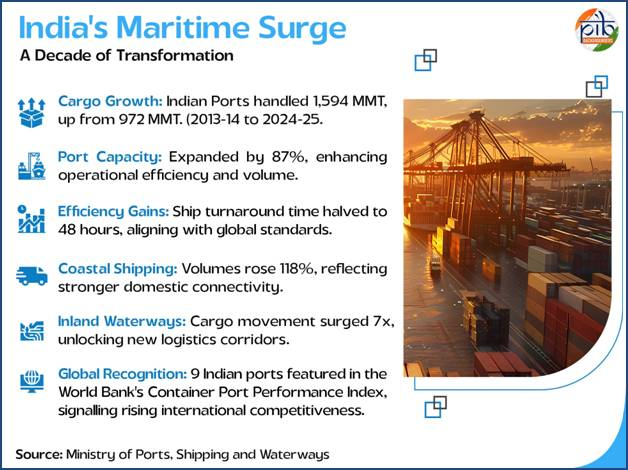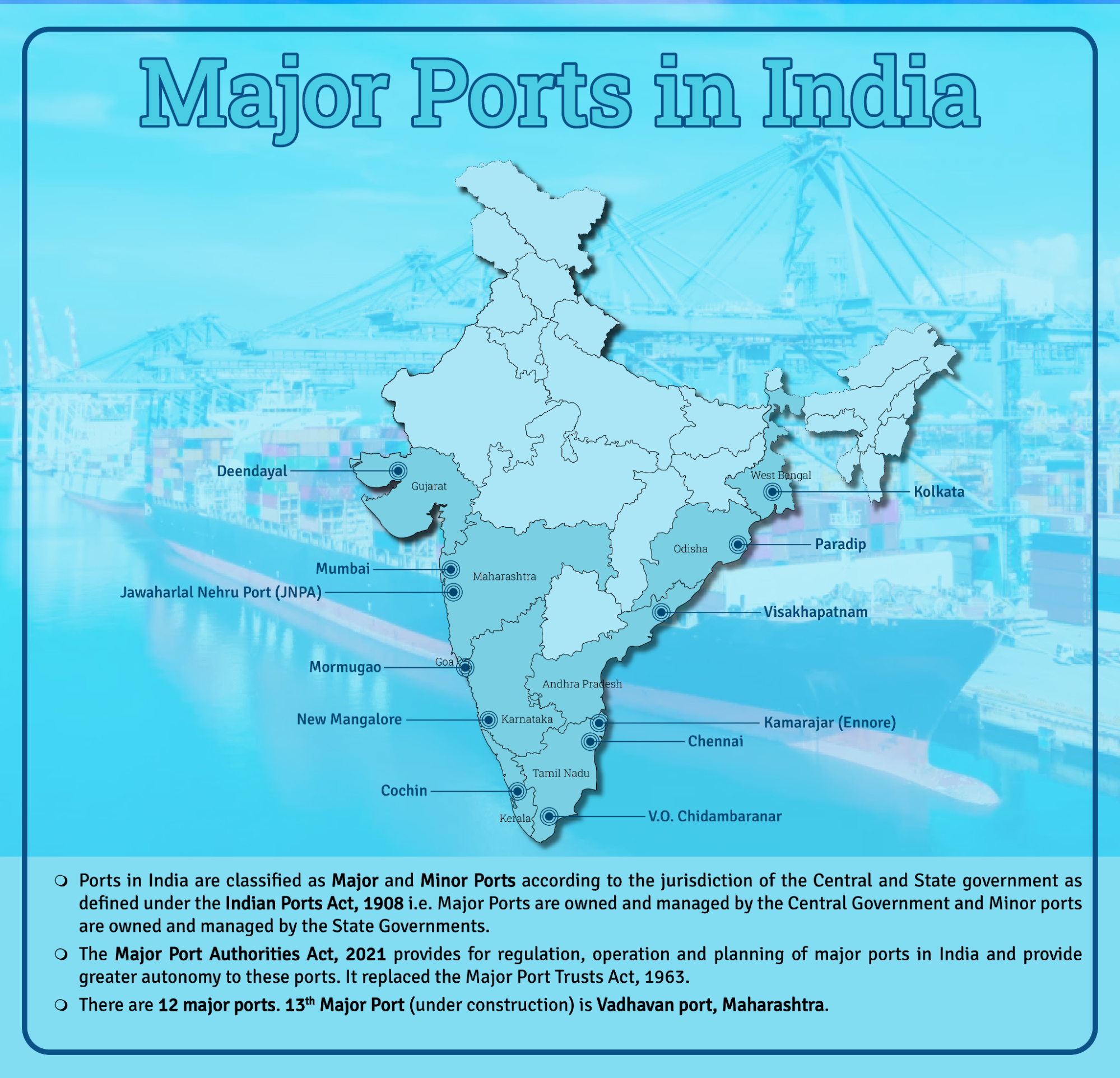Important Facts For Prelims
Indian Ports Act, 2025
- 29 Sep 2025
- 3 min read
Why in News?
The Indian Ports Act, 2025, passed by Parliament in August 2025, replaces the century-old Indian Ports Act, 1908. It introduces a modern legal framework aimed at integrated port development, cooperative federalism, and global competitiveness.
What are the Key Provisions of the Indian Ports Act, 2025?
- Statutory Bodies: The Act formally recognizes State Maritime Boards established by coastal states and empowers them to manage non-major ports (covering planning, licensing, tariffs, and compliance).
- Under the act, the Maritime State Development Council was given statutory status to guide data transparency, policy advice, national planning, and centre–State coordination.
- Port Officers: The Act designates the conservator - appointed by the government - as the port officer, with powers over vessel movement, fee recovery, disease control, and penalty adjudication.
- Dispute Resolution: The Act mandates setting up Dispute Resolution Committees (DRCs) to resolve disputes at non-major ports; appeals lie with High Courts, and arbitration is permitted for quicker resolution.
- Tariff Regulation: At major ports, tariffs are set by the Major Port Authority Board or a company’s Board of Directors, while at non-major ports, they are fixed by the State Maritime Board or concessionaire, with mandatory online publication for transparency.
- Safety & Sustainability: The Act enforces penalties for safety breaches, aligns with global conventions like MARPOL (the International Convention for Prevention of Marine Pollution For Ships) and Ballast Water Management, mandates pollution control and disaster readiness, and requires central audits for compliance.
- Digitalisation & Ease of Doing Business: Maritime Single Window and Advanced Vessel Traffic Systems to improve efficiency and reduce congestion.
Ports In India
- Ports are vital to India’s economy, handling about 95% of export and import (EXIM) cargo by volume and 70% by value.
- With 12 major (13th major port at Vadhavan, Maharashtra is still in development phase) and over 200 non-major ports, they drive trade, industrial growth, and connectivity. In the past decade, Indian ports have modernized to global standards, boosting efficiency and India’s maritime standing.
UPSC Civil Services Examination, Previous Year Question (PYQ)
Prelims
Q. What is the importance of developing Chabahar Port by India? (2017)
(a) India’s trade with African countries will enormously increase.
(b) India’s relations with oil-producing Arab countries will be strengthened.
(c) India will not depend on Pakistan for access to Afghanistan and Central Asia.
(d) Pakistan will facilitate and protect the installation of a gas pipeline between Iraq and India.
Ans: (c)








